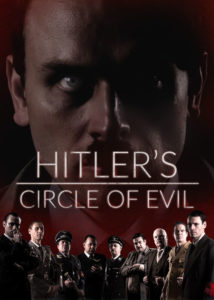Recently a friend commented that he agreed with the conservative Youtube pundit Ben Shapiro that the film Get Out was racist. I had not heard Shapiro’s arguments and did not voice my disagreement. Now I have listened to Shapiro’s comments and I find them way off the mark and the error springs from mistaking a personal interpretation as authorial intent. Before I get into Shapiro’s comments I want to use a couple of well know films to illustrate what I mean by personal interpretation versus authorial intent.
1986’s Robocop is an amazing film, in many ways an early modern superhero movie, albeit one that gory, violent, and earned its R rating from the MPAA. In a scene where the audience is getting exposition about the character Robocop it is explained that he eats a rudimentary past to support his remaining biological systems. Johnson, one of the executive behind the project that turned a dead cop into a company owned cyborg, dips his finger into the paste, tastes it and pronounces it ‘baby food.’ His boss Jones, advises Johnson to ‘knock himself out.’ When I watched this scene in the theater I though it was clear symbolism that these men manipulating with lives were in fact children playing with th9ings that they did not understand. Later in the film when Robocop is recalibrating his targeting system and uses jars of baby food that his partner Ann Lewis had brought as target again I assumed the symbolism was clear, he would destroy the company that did this to him. Years later with the DVD I learned that the director had meant nothing of the sort. Paul Verhoeven revealed no underlying symbolism to the first scene and in the second the jars of baby food symbolized the children Lewis and Robocop could never have. Since there are no romantic elements in their relationship that intent took me by surprise.
My second example come from 1994’s The Lion King. A wonderful movie of old school cell animation The Lion King is about a lion cub, Simba that must overthrow his Uncle Scar who had usurped the throne. When Scar is assembling his plan and his minions, a pack of hyenas, to plot the murder of the King and his son, he sings a delightful song Be Prepared. In this fantasy world, unlike real life ecology where lions often steal hyena kills, hyenas are scavengers living off the scraps left over by the lions. Scar gets their loyalty by promising that they, the hyenas, will never go hungry again. When he overthrows the ‘natural order’ and makes himself king, he brings in the hyenas and the entire system collapses, plunging the kingdom into ruin and starvation for all until Simba defeats Scar and restores the balance, the circle of life.
Instantly it flashed to me that on interpretation, and this time not one I thought for a moment the producers intended, was that by bringing in the non-producers, the takers, Scar had overtaxed the makers and destroyed the economy. In effect this entire film could be taken as a subtle attack on liberalism and social safety nets. Hardly the sort of political message I would have expected and perhaps the reason the rumors are that the live action version will omit the song Be Prepared.
With those examples in place let’s return Get Out and Shapiro’s interpretation.
In Shapiro’s view the movie is about ‘black people who associate with white people eventually are drawn into white lifestyles and they become stereotypical white people.’
I have no doubt that this is Shapiro’s actual interpretation of the movie’s themes, but that is not the same as authorial intent. Just as with my take on the baby food in Robocop, Shapiro’s take is his own and not own that has been voiced by the film’s writer/director. Shapiro offers no support for this view that Get Out is ‘supremely racist’ than his own interpretation of the movie. An interpretation not supported by any textual analysis of the script or film. In the words of Oz from Buffy the Vampire Slayer ‘a radical reinterpretation of the text.’ I have heard, read, and seen many interviews with Jordan Peele’s, Get Out’s creator and nothing the man has said lends any credence to Shapiro’s view. Just as Verhoeven’s intent is starkly different than my take, Peele’s intended message and theme is very much at odds with Shapiro’s views. I find it interesting that in those four minutes where Shapiro talk about the movie he emphasizes how funny the film is without ever touching on the fact that Get Out is a horror film. Yes, there is humor but the driving tone is one of dread, danger, and doom. It is fascinating that aspect of the movie seemingly has slipped Shapiro’s notice.
At meetings of my writers’ group I often comment that no honest critique can be wrong and for Mr. Shapiro I guess the movie is racist, but this speaks less about Jordan Peele’s and his script than it does about the lens though which Shapiro viewed the material.


